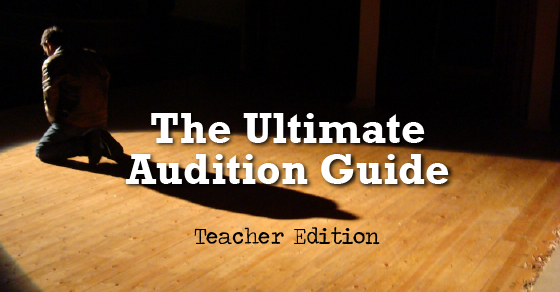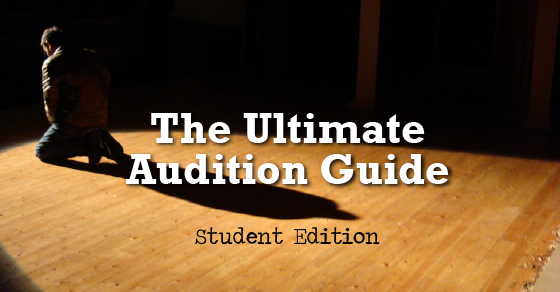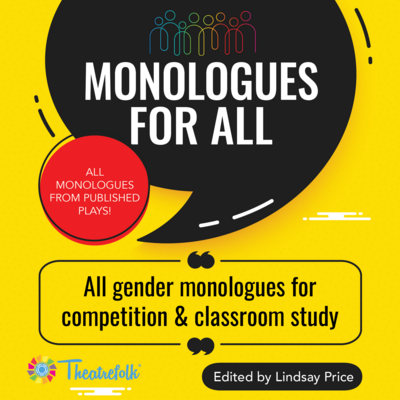Agatha Rex by Lindsay Price is a bold high school take on Antigone - packed with heart, conflict, and a powerhouse ensemble. One girl. One stand. One huge risk. *NEW COMPETITION VERSION AVAILABLE!*
Choosing A Monologue
Choosing the right monologue can be an agonizing part of the process. How do you know it’s right? And right for you? And right for the situation? The wrong monologue can ruin everything…
Monologues are used for a variety of reasons within plays. To share a thought, a story, an emotional outburst. A revealing character moment. A private moment between the character and the audience.
Not all monologues make for great competition monologues. You can’t just look for a chunk of text from your favourite character and go to town. Is the monologue story driven, or character driven? Is there an emotional change? What does the character reveal in the monologue? What is the character fighting to achieve? Is there potential action?
Here are two monologues. They’re both good pieces but only one of them is right for competition. Which one is it? Answer’s at the bottom!
Sweep Under Rug by Lindsay Price
COUNSELLOR KELLY: Counsellor Kelly here on C-I-T-Y with the evening announcements for Blocks 7A through E. I’m so excited to announce the upcoming plans for the tenth annual Bobby Sue birthday celebration! I can’t wait! Can you believe it’s been ten years? “A Bobby Sue in every home that needs one” has been the motto from the very beginning. We see no reason to change it. When you have a Bobby Sue to tell you what to do, life gets better! Employment is way up; crime is way down. Just the way we like it. Yay! You guys are so good. We’re so proud of you! To help celebrate ten successful years, we’re going to have an extra special celebration. Party hats and noisemakers for everyone! Just remember to treat them nicely, we’ll be collecting them at the end. We’ll do a count down, just like New Years Eve, and we’ll all sing together. Won’t that be fun? And then, very exciting, a confetti cannon! And then we’ll hold a lottery to see who gets cake. I know, I know, I know. Yes it would be great if we could give everyone cake. But in these times, it’s just not possible. What can we do? You don’t have to eat your piece if you get one. You can always share. That would be such a good thing to do!
Deck the Stage by Lindsay Price
SHELLEY: You don’t get off that easy. Sit down! I haven’t even started. Sit down. (She holds up a picture) Ask me who’s in the picture. Ask! That’s my dad. Pretty handsome guy don’t you think? Ask where he is. Ask where he is! Come on, you wanted to talk; ask where he is. I don’t know. Isn’t that funny? Isn’t that a scream? I don’t know. Two years ago he went to work on Christmas Eve and he never came home. Don’t be. He stole money from his company and ran away with the boss’ secretary. Merry Christmas! That’s our nearest guess anyway. No one knows for sure because there hasn’t been one word. Not one. Not a letter. Not a telegram. Not a postcard. Not an answering machine message. Nothing. He left us with debts up to our ears, and we didn’t even get a goodbye. How’s your dad? Is he alive? Does he talk to you every day? Well good, ’cause let me tell you, around here there isn’t much talking. Around here, we bounce from apartment to apartment and my mom tries to keep working but she’s not very strong. My dad knew that. And he left. So you’ll have to excuse me if I’m cold, or distant, or pretentious. But my mind’s a little full ’cause I only got three hours of sleep after working the night shift at the 7-11. And I could really give a crap about Christmas because all it means is that my father didn’t love my mother and he didn’t love me.
WHICH IS IT?
Sweep Under Rug: There is certainly a clear character in this monologue with a specific voice. While there’s the potential to have fun with the characters, there’s also a lot of plot being set up. There’s more storytelling here than any emotional journey – the character’s emotional state is exactly the same from beginning to end and that’s an issue if you’re looking for something to win a competition. It’s much more about the story and much less about the character.
Deck The Stage: This is a character driven emotion based monologue. The character is on a roller-coaster of emotion as she not only confronts the person she’s talking to, but reveals some very deep wounds about her dad. Not only that, but there’s specific clues for how to play the character physically – if she works the night shift at the 7-11, she’s going to be exhausted, frustrated, spitting mad. These are great clues toward an award wining performance.
Related Articles
Audition Toolkit
by Lindsay Price, Craig Mason, and Kerry Hishon
Teach students to present their best selves in an audition situation with The Audition Toolkit - complete with articles, exercises, tips and more for both teachers and students.
The 30-Second Monologue Project
by Lindsay Price
Give students the confidence, skills and tools they need to master the monologue with The 30-Second Monologue Project. This four-lesson unit guides students from the first moment to a successful performance.
Monologues for All
by Lindsay Price
Many monologue books have monologues with only male- or female-identified characters. This resource allows students to infer the identity of the character.






